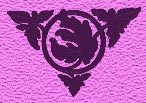

Edith Layton's characters quote Shakespeare more sporadically. In The Game of Love, Layton's hero, Arden Lyons, not only embodies the opening epigram from A Midsummer Night's Dream that "a lion among ladies is a most dreadful thing" (5) in his fears about his size and roughness, he also likens his lady to the pearl in the Ethiope's ear from Romeo and Juliet and challenges an army deserter with Falstaff's words about honor from 1 Henry IV. In Layton's False Angel, the hero comforts his beloved for her unfashionable dark beauty not with the predictable sonnet, of which she says "It's a nice bit of verse, but although it's the opposite of what he intended, I've always considered it lowering to the dark lady's spirits," but with a quotation from her favorite character, Mercutio, "He's already dead: pierced with a white wench's black eye" (219). For both Ewing and Layton, Shakespeare's language establishes an individual hero or heroine's depth of character as well as his or her suitability for a comparably literate mate. Moreover, as the comments from Dark Angel suggest, many of these references revise or interpret the source.
Unlike the chronic quotations in Carroll's novel or the Michaels trilogy, these references constitute what I would call "incidental Shakespeare." The allusions are typically isolated in the text and tied only to specific incidents or characterizations rather than to the plots as a whole. For example, characters in several different novels draw on Hamlet briefly to persuade someone to action--either romantic or political. In Loretta Chase's The Vagabond Viscount, Max (Lord Rand) reinterprets Hamlet in order to urge his friend to propose:
"That's the secret, don't you see? Can't think about those things or you end up thinking and hesitating forever."
"Like Hamlet, you mean."
"Exactly. There he was meditating, waiting, and watching--and what does it get him? His sweetheart kills herself. Don't blame her. The chap wore out her patience."
Mr. Langdon considered this startling theory briefly, then objected to it on grounds that Hamlet was not first and foremost a love story. There was, after all, the matter of the father's murder to be avenged.
"On whose say-so?" Max argued. "A ghost. He had no business seeing ghosts. If he'd attended to the girl properly, he wouldn't have had time to see ghosts. If you want Miss Pelliston, my advice is to go and get her ..." (Chase 149-50).
Max's revision locates the significance of Hamlet squarely in the love plot and offers a reinterpretation of the play's central issues. This moment in Chase's text uses Shakespeare as a kind of cultural shorthand. Comparable incidental Shakespearean references appear in Chase's Devil's Delilah (Romeo and Juliet) , Joan Wolf's The Counterfeit Marriage (Hamlet), Elizabeth Mansfield's Matched Pairs (Romeo and Juliet), Jo Beverley's The Stanforth Secrets (Othello), Rita Boucher's The Would-Be Witch (The Tempest) and a host of other romance novels. Such usage turns up frequently--Hamlet to invoke paralyzing indecisiveness; Othello, destructive jealousy; Romeo and Juliet, reckless or thwarted love; The Tempest's Caliban for lust, and so forth. Incidental Shakespeare relies on Shakespeare to connote emotional states; the element of Shakespeare-as-obstacle drops from the mix.
List of Actress Novels / Reference List by Play / Return to: Incidental Shakespeare
